Justice and Ageism: Challenges in Healthcare - UNCC300
VerifiedAdded on 2023/01/10
|5
|1044
|100
Essay
AI Summary
This essay examines the pervasive issue of ageism within the healthcare sector, specifically focusing on its impact on the nursing profession and the elderly population. The essay defines ageism as the mistreatment and discrimination against older individuals, highlighting how media portrayals contribute to negative perceptions. It explores the negative implications of ageism, including social isolation, reduced self-esteem, and poor quality of medical care, which contradict the core values of nursing. The essay analyzes how ageism affects both patients and older nurses, including cost-cutting measures that lead to the early retirement of experienced nurses. It references research arguing that older patients often prefer care from nurses of a similar age, emphasizing the importance of understanding the needs of the aging population. The essay concludes by underscoring the long-term detrimental effects of ageism on healthcare service delivery and patient experience, advocating for strategies to address and mitigate these issues to promote a more equitable and supportive healthcare environment.
1 out of 5
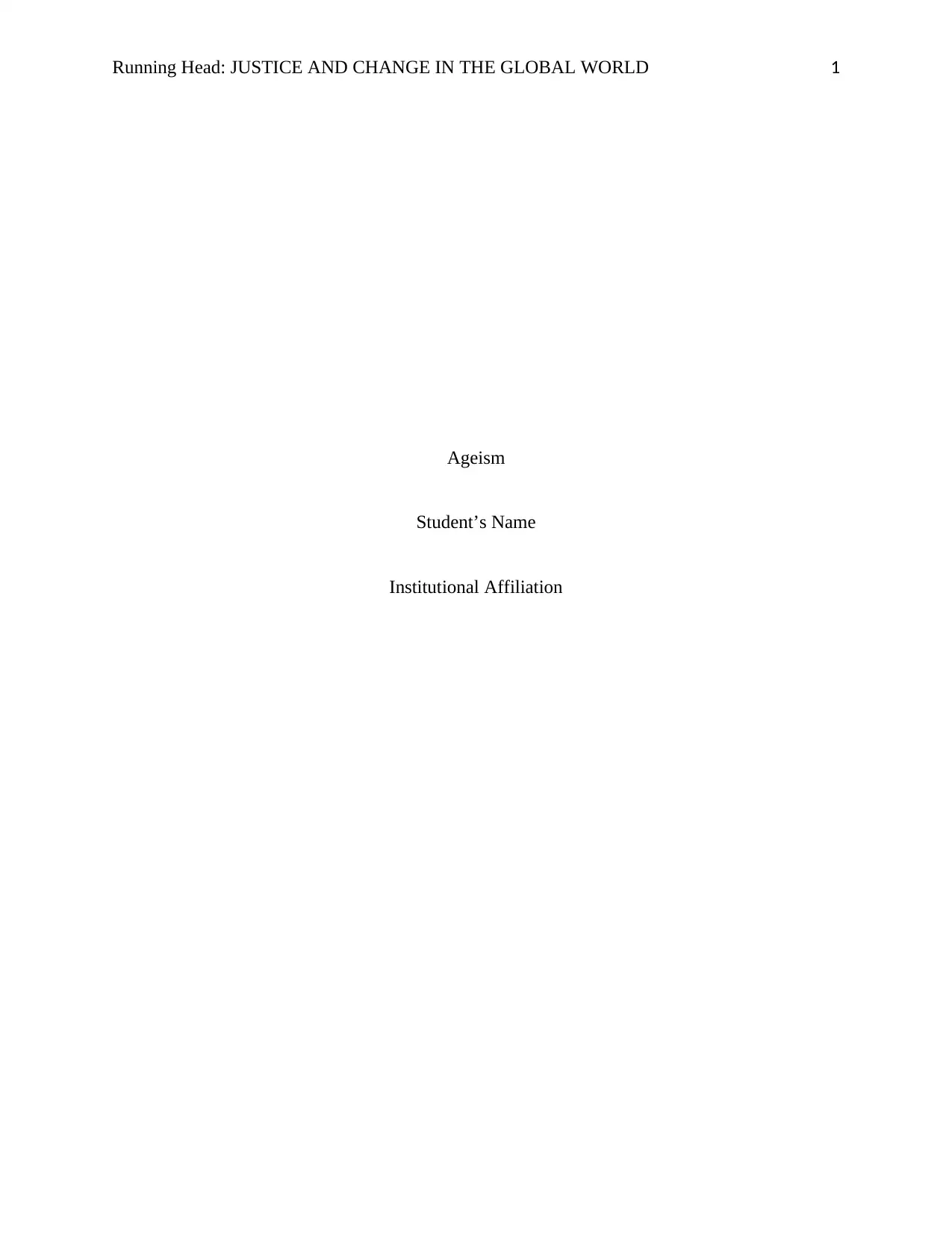
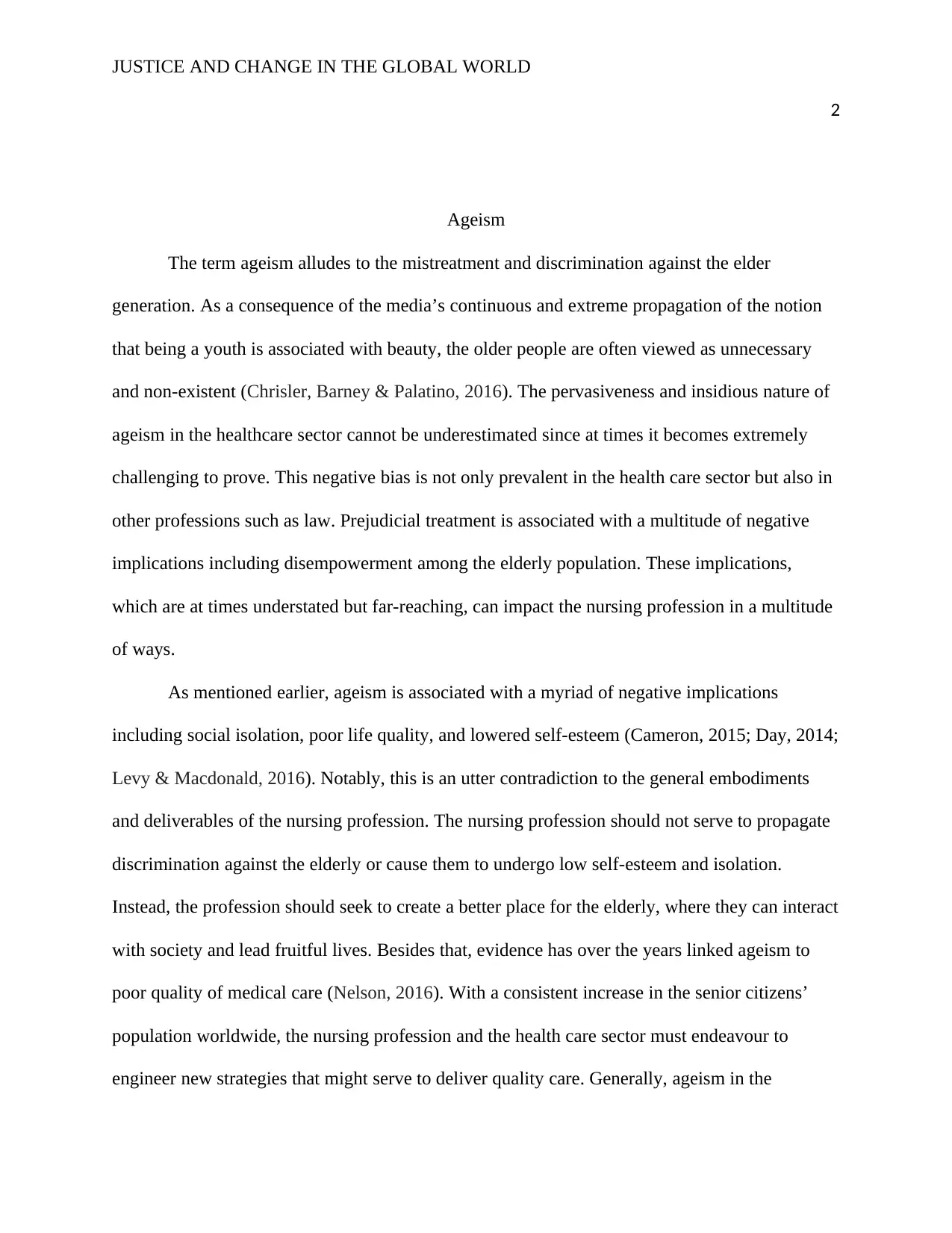
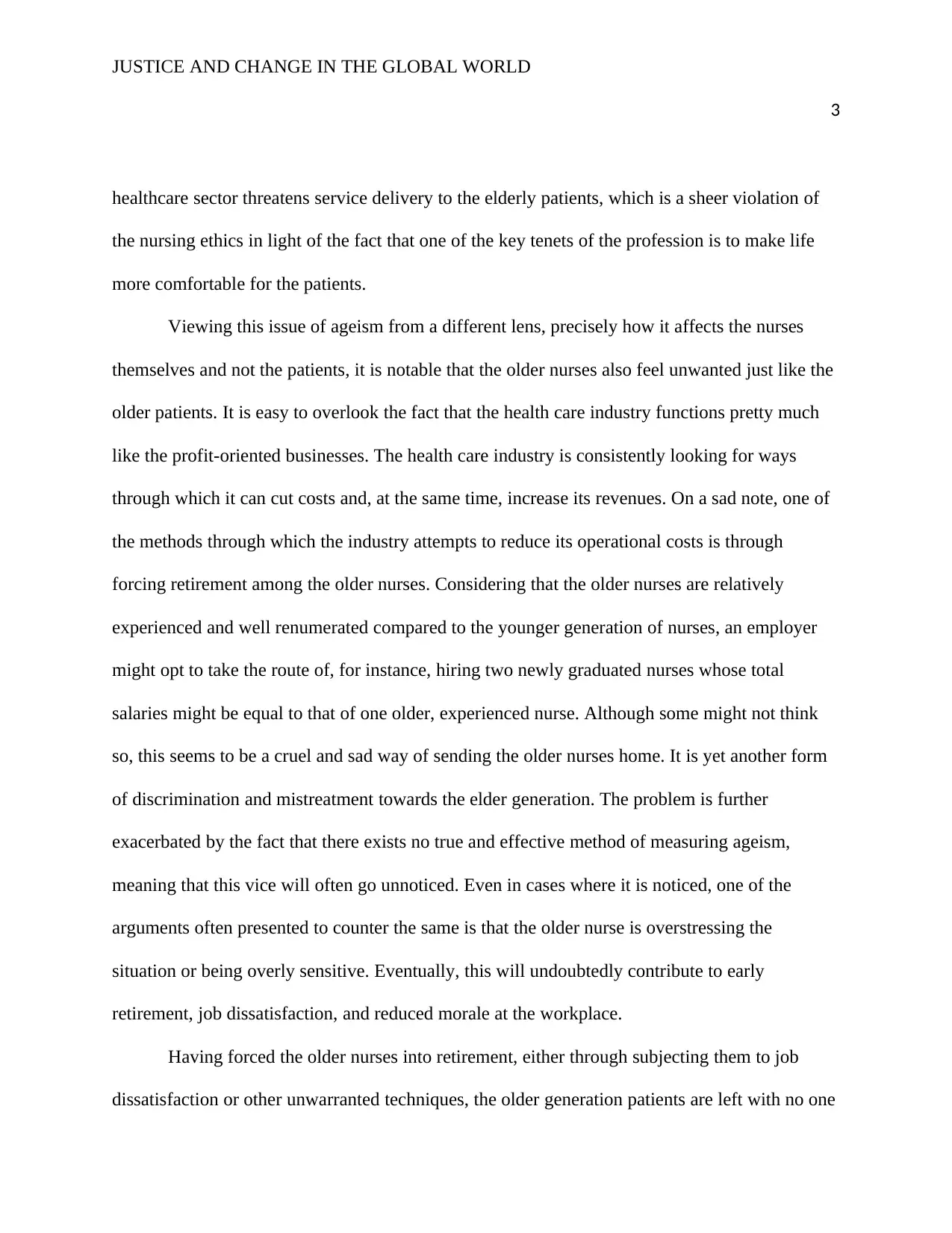

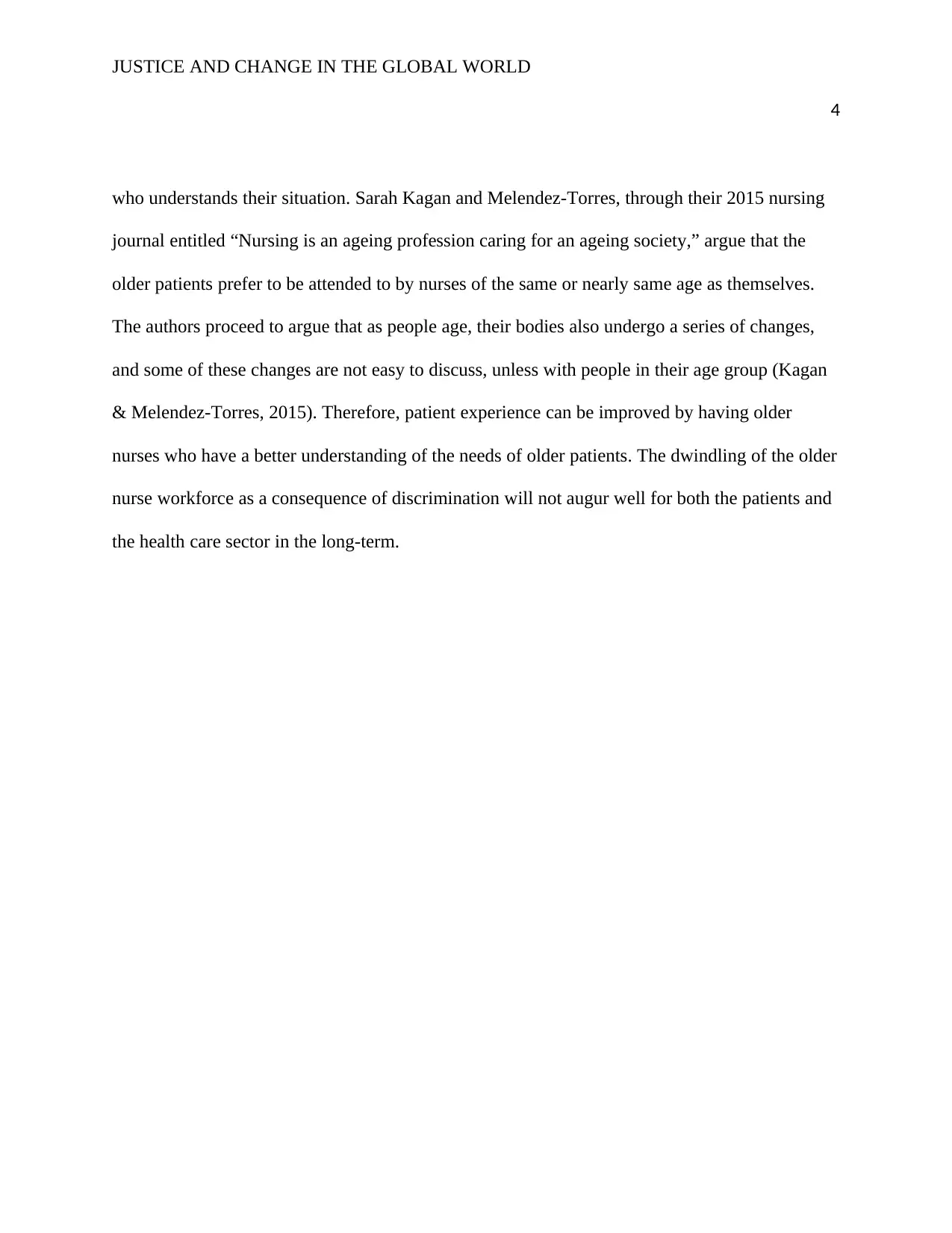
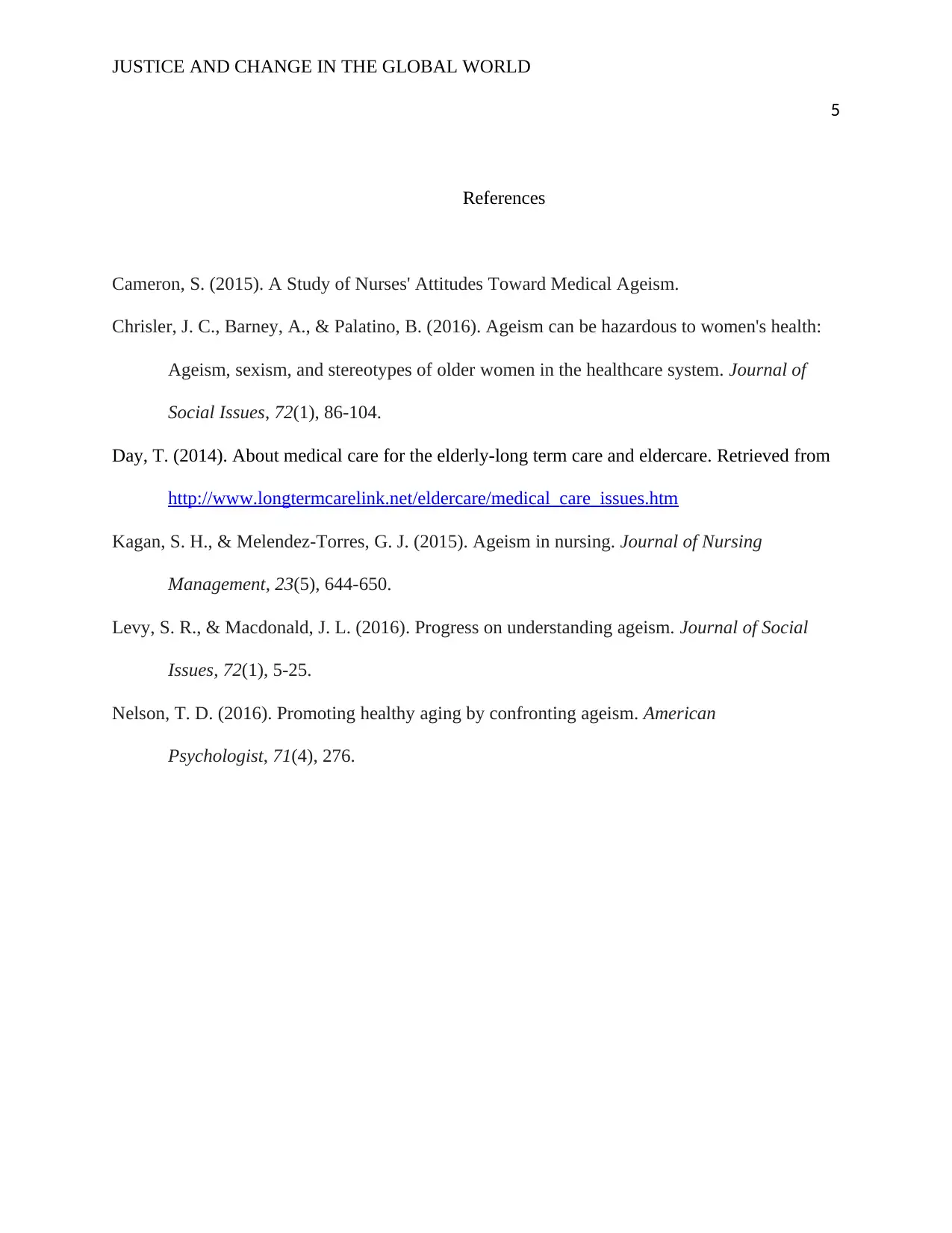






![[object Object]](/_next/static/media/star-bottom.7253800d.svg)